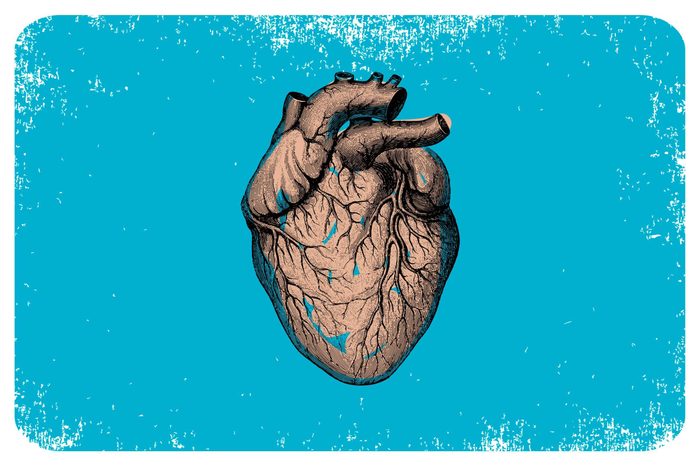
You get a lot of heartbeats
The average human gets around three billion heartbeats in their lifetime, according to a review in Ageing Research Reviews. That’s all the more reason to care for your ticker. Prioritizing sleep and staying active are among some of the best ways to prevent heart disease.
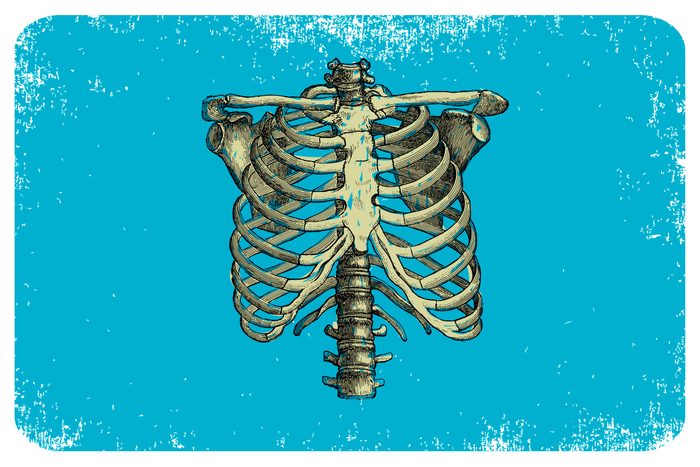
Your skeleton is all wet
You probably already heard that the human body is made up of mostly water (55 to 60 percent for adult women and men, respectively). What you might be surprised to find out is that fluid isn’t just in your skin, muscles, and organs, but your skeleton, too. In fact, water makes up nearly one-third of your bone mass, according to the United States Geological Survey.
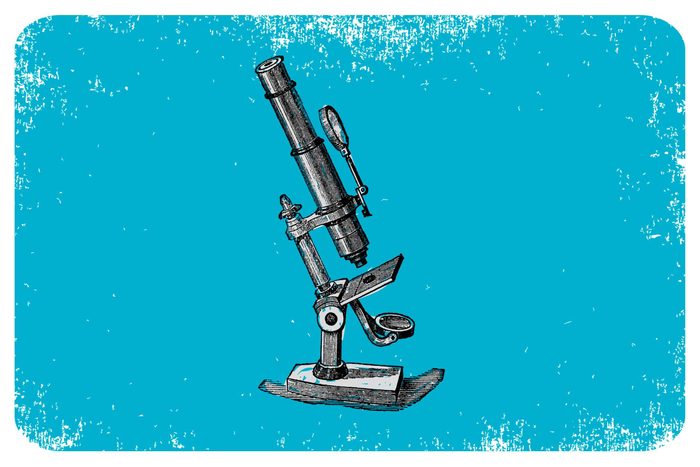
You’re part bacteria
If you claim to be afraid of bacteria, better think again. A 2016 study found that a 154-pound man has about 38 trillion bacteria, which is roughly the same amount of human cells, the researchers say. What’s more, the bacteria weigh nearly a half-pound in total.
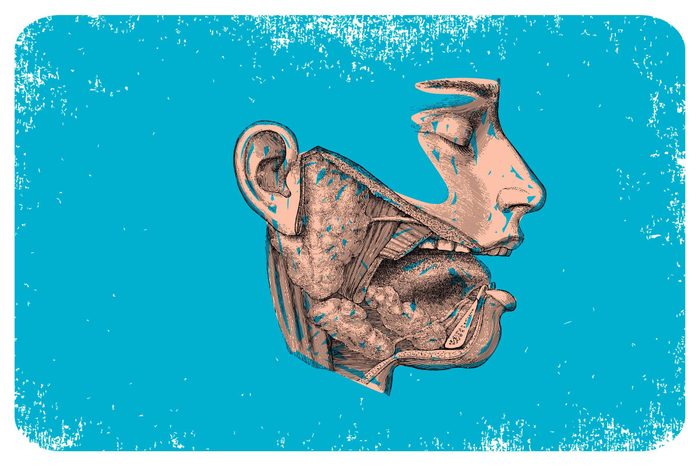
Your sneeze goes far
There was a long-standing stat that a sneeze travels 100 mph, but newer research found it’s not even close. Still, that achoo is rather impressive. A 2013 study in PLOS One found that a sneeze moves at a rate of about 10 mph. Still, cover your mouth and nose to safeguard others from germs—and drink this if you feel a cold coming on.
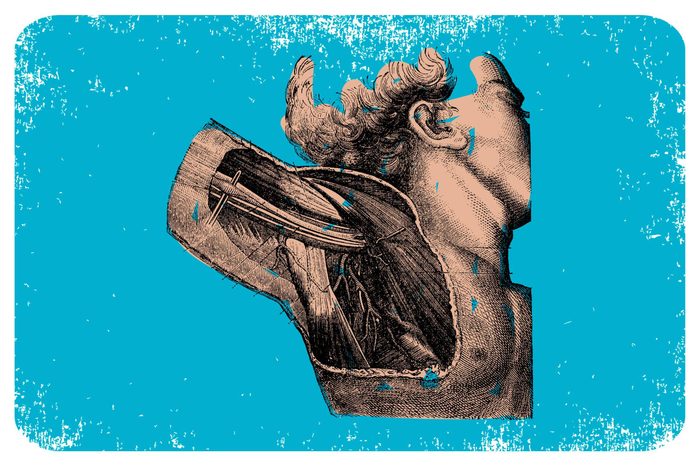
So this is why you sweat a lot
You have two to four million sweat glands all over your body, points out the International Hyperhidrosis Society. Most of these are the non-stinky kind located on the soles of your feet, your palms, and your forehead and cheeks. (Keep in mind, these other medical issues could explain why you sweat so much.)
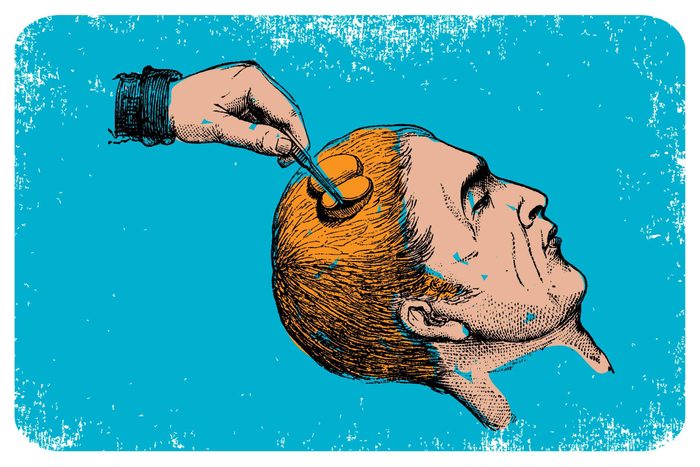
You have more hair than you think
People are born with five million hair follicles, 100,000 of which are located on your scalp, notes the American Academy of Dermatology. And while many women might want long locks, hair grows faster in men than women. (Check out these steps if you want to grow out your hair.)
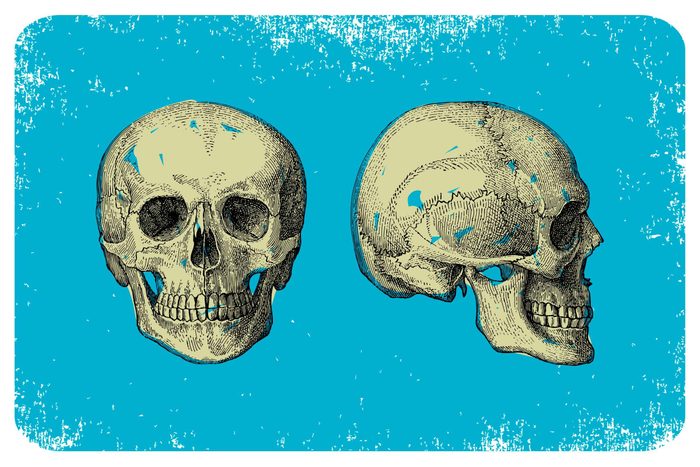
We’re all the same
The human body is mostly made up of four elements: oxygen, carbon, hydrogen, and nitrogen, accounting for 96.2 percent of you. (Calcium and phosphorus are the other big players.) It’s amazing how those elements come together to help create a body that does truly impressive things each day, from fighting cancer to forming 20,000 thoughts.
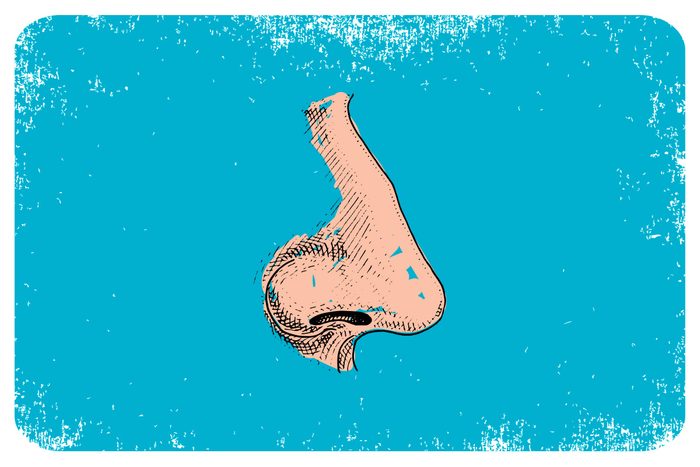
Every breath counts
You inhale and exhale without even thinking about it—to the tune of 17,280 to 23,040 breaths per day. And while it’s an automatic habit, it can bring big benefits.
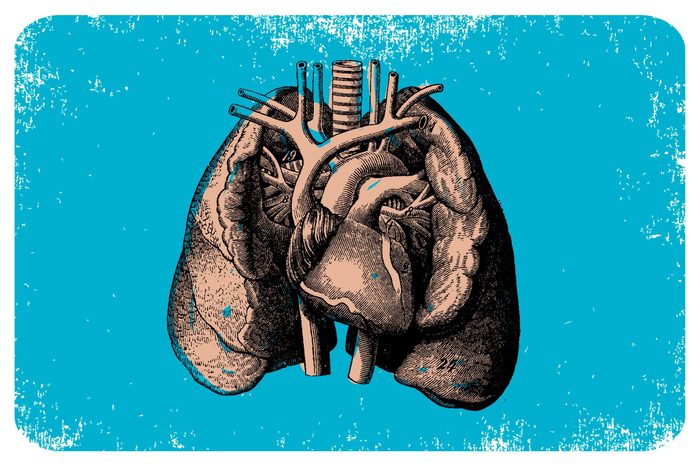
Your lungs are large
Speaking of inhaling and exhaling, your lungs have a tough job—and maybe that’s why they’re so large. Depending on the source, experts estimate that the surface volume of your lungs can cover a badminton court or half a tennis court (some even say an entire tennis court).
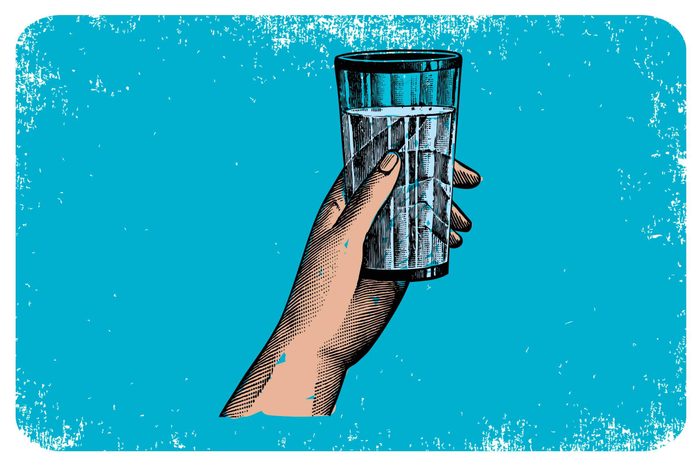
Here’s why you need to hydrate
Exhaling is one way water leaves your body, and the amount that comes out quadruples when you exercise. When you’re getting sweaty, you exhale about 60 to 70 milliliters per hour, research points out. (Make sure you’re not falling for these hydration myths.)
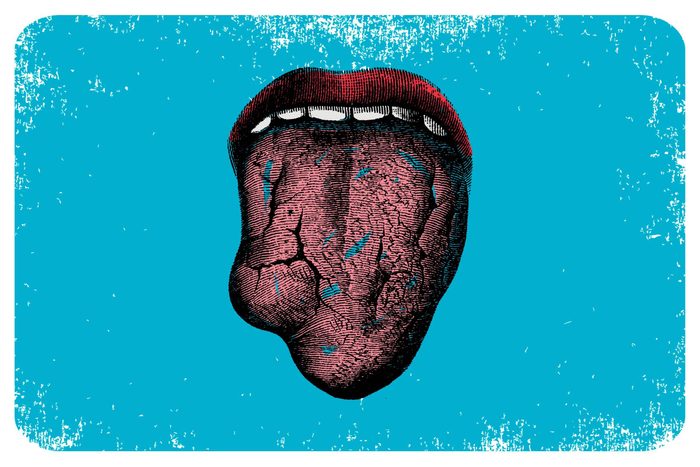
You’re a saliva machine
You probably don’t think much about your dribble, but you produce on average 640 milliliters of saliva a day—that’s a little more than 20 ounces. That’s a good thing since saliva plays an important role in washing away the nasties in your mouth. People with low saliva levels are more vulnerable to cavities and oral infections.
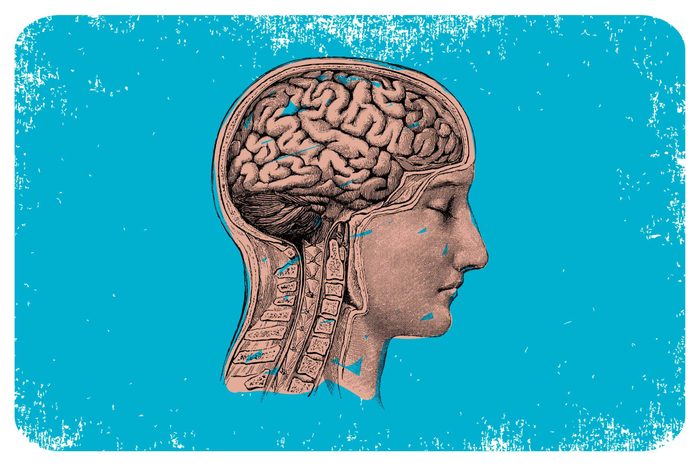
You’re pretty brainy
Give it up for your noggin. There are at least 100 trillion neural connections in the human brain. (Keep them all firing by following brain-boosting habits.) Whether you tutor others or learn to play an instrument, you can protect against cognitive decline and stay sharp for the long haul.
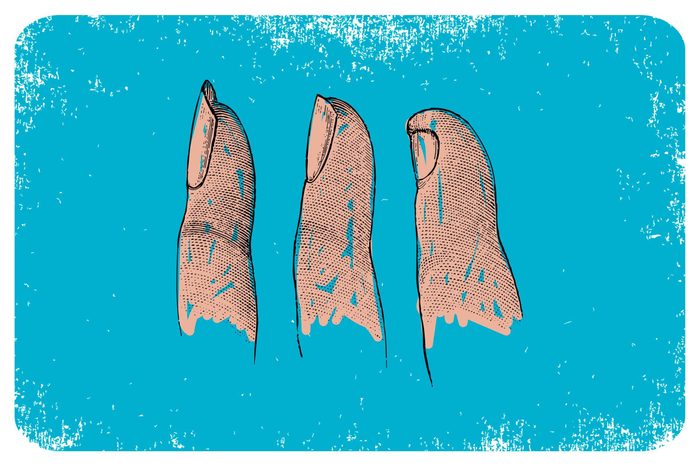
Toenails lag behind fingernails
Ever wonder why you need to clip your toenails less often than your fingers? It’s because they grow at a snail’s pace. While fingernails grow 0.1 millimeters per day, toenails only grow 1.62 millimeters a month, according to the Journal of The European Academy of Dermatology and Venereology.

You’re pore-fection
Magnifying mirrors are the worst for revealing every imperfection on your face, but even they can’t see just how many pores dot your features. Adults have about 20,000 pores on their face, per a Harris Poll conducted on behalf of L’Oreal Paris. Now that you know that fact, read these myths and truths about your pores.
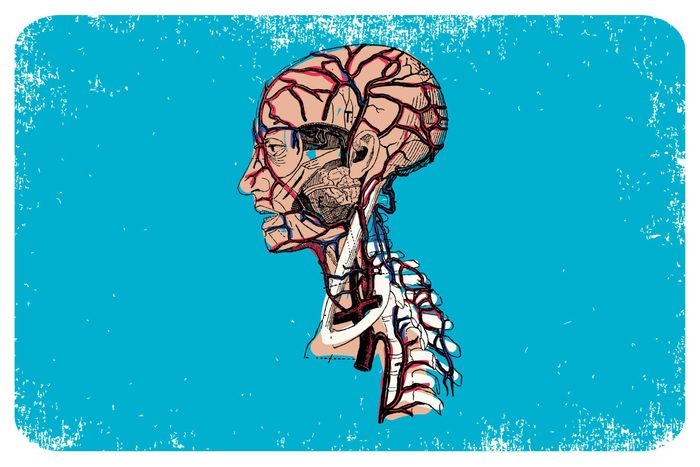
There’s a hidden network in your body
Blood vessels are tiny, but line them all up and you’ve got something really big—really big. Your body boasts a network of 60,000 miles of blood vessels, notes the National Institutes of Health. One way to keep them healthy is by eating right.
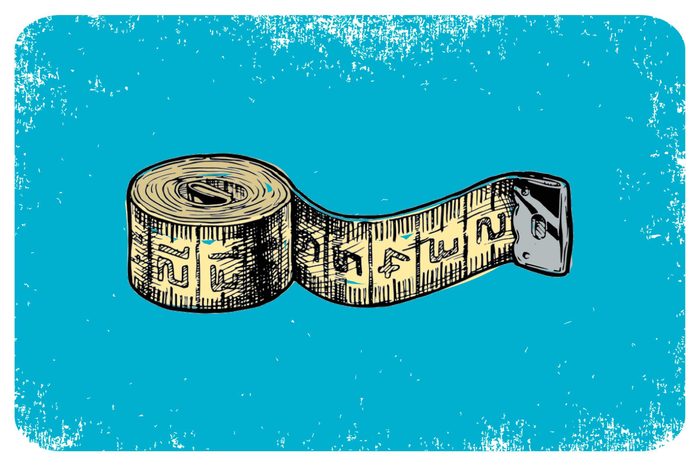
Certain body parts have standard sizes
For men wanting to know if they measure up, the average penis is about five inches when erect, according to research in the Journal of Urology and the British Journal of Urology International. They also note that the average circumference is four and a half inches. (Have pain during sex? One of these culprits may be the reason sex hurts.)
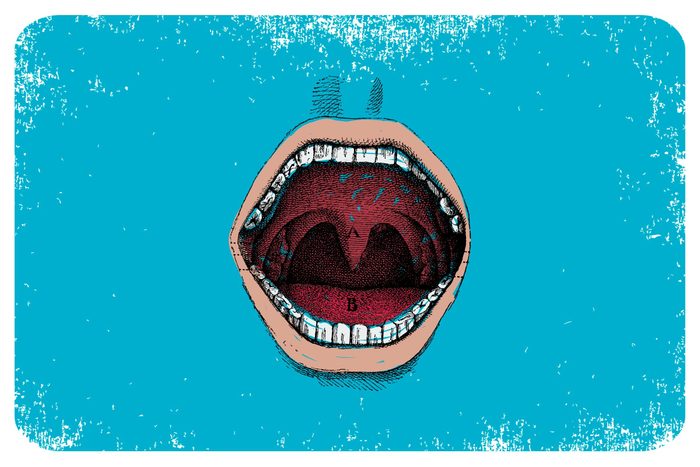
You’re built to be a foodie
Salty, sweet, bitter, sour, and savoury: Your tongue boasts 2,000 to 8,000 taste buds, and each has 50 to 100 taste receptor cells. (The number and location of these taste buds vary widely in each person.) That’s a huge opportunity to love every bite of food you eat.
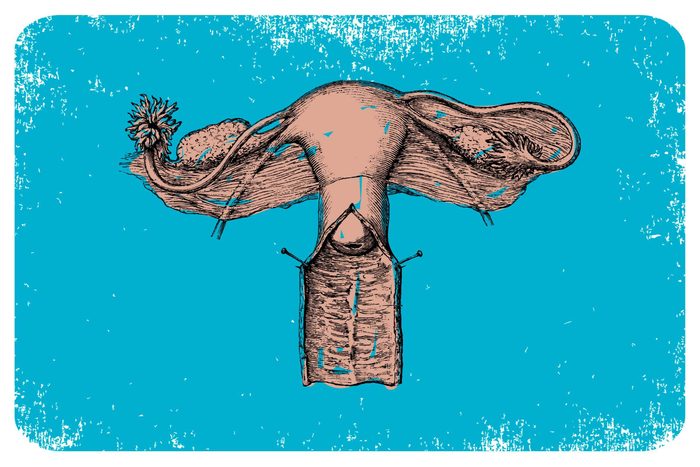
Ovaries house a lot of eggs
Women are born with one to two million eggs in their ovaries. But you won’t continue making them throughout your life: A woman’s supply decreases throughout her years until menopause. As many as 500 mature throughout the reproductive years, with the rest being simply destroyed by the body.
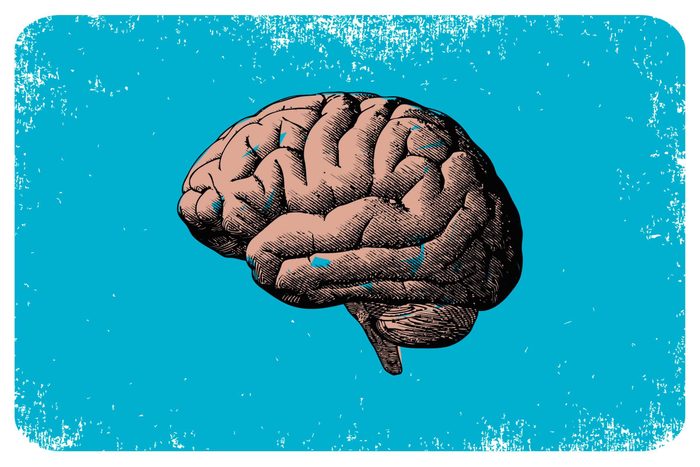
Your noggin’s kind of hefty
As big as your brain is, it’s a mystery why you’re losing your keys all the time. The average human brain weighs in at about three pounds for men and slightly less at two and a half pounds for women. And it can do some pretty impressive things—even this simple activity can boost your memory by 20 percent.
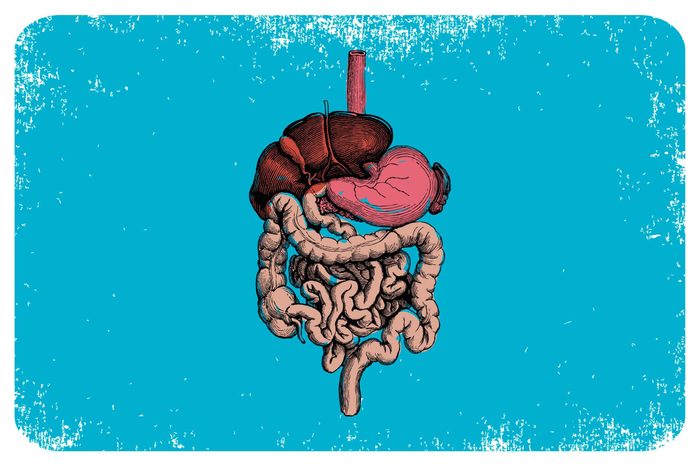
Everybody poops
No seriously. The average human does 1.2 poops every 24 hours, per research in Critical Reviews in Environmental Science and Technology. (A rather fun but unofficial calculator can estimate how many times you’ve pooped in your life.)
Now that you’re all caught up on the most obscure human body facts, next read up on the amazing facts about your brain.
